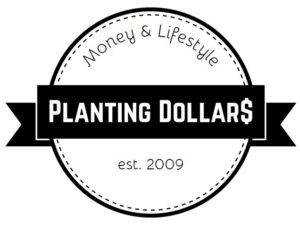Back when I was just a young chap (which wasn’t too long ago, so don’t get any age-guessing ideas…), there was a guy who lived down the street from us who built dragsters in his driveway. Yes, real fire-breathing, asphalt-scorching, thousand-horsepower dragsters – the kind that rip through a racetrack in milliseconds and accelerate from 0 to warp speed faster than a young boy could drool.
I know because I was one of those young boys – so was half the neighborhood. When this guy would pull one of those suckers out of his garage, every Y chromosome within 5 blocks was standing at the edge of this guy’s driveway, drooling.
What does this have to do with anything? Good question. I’ll get to it in a roundabout way…
The mechanic who built these dragsters wasn’t a racecar driver, so he wasn’t tweaking his own ride in between checkered challenges. Instead, he just loved working on big engines. And judging by the amount that churned out of his lowly suburban garage, I’d say he was pretty good at it.
I remember when my dad told me that he made a couple of thousand dollars for every machine he built. In the eyes of a seven-year-old that seemed like a fortune, but years after we moved I realized that at the rate of one car a month (which is probably pretty generous – I’d conservatively estimate he built one start-to-finish in two or three months), he would barely cover his living expenses. Once you factor in a mortgage, utilities, food and clothes for his kids, a car (of the non-dragster variety), and other miscellaneous costs – not to mention the big chunk of income taxes taken off his “paychecks” – it didn’t seem like enough to make the ends meet.
Turns out the guy was a systems analyst by trade. Honestly, I have no idea what a systems analyst is now, let alone two decades ago, but that’s what he was. He had a big prestigious degree from a big prestigious school, and landed a big prestigious job right out of college complete with a big prestigious paycheck.
There was only one problem: he hated being a systems analyst.
So he quit the prestigious job.
And there he sat: A full mortgage, a hungry family and a smiling face.
But this guy was living in Denver at a time when systems analysts were in high demand. So he spent parts of his day contracting himself out to jobs he hated, while spending the other parts bent over supercharged Hemi engines. Gradually, his need to analyze systems subsided and he was able to focus on what he loved: building crazy-fast cars.
This brings me back to the fundamental question: How did he pay all of his bills on the seemingly insignificant hot rod income? Turns out he didn’t have very many bills. He realized early in his self-employed lifestyle that he could significantly stretch his income farther if he had fewer expenses. So he put his big freelance paychecks to good use and, as he told my dad, never made a house payment that wasn’t at least double the minimum. He drove a crappy economy car (weren’t all cars in the 80’s crappy economy cars?) that he probably kept maintained himself – and paid it off in full I’m sure.
He lived as cheaply as possible for about five years. In that time his family wore hand-me-down clothes, they ate bulk food and they rarely went anywhere expensive. And in those five years he eliminated the cost of his house.
Suddenly a paycheck of a couple thousand dollars a month doesn’t seem so bad, does it? Especially when the bulk of it isn’t dredged off the top for a mortgage/rent payment.
I’m not suggesting that all of us quit our jobs and build dragsters. That’d be crazy (and would likely get me named in several bankruptcy lawsuits). After all this guy did have a few things working for him that most of us do not: A highly-paid freelance skill, a market that craved his services and a wife and kids who didn’t leave him during the process.
But what if we all sat down and evaluated our personal budgets from the mindset of “What can I pay down and eliminate?” Think about it in terms of baby steps, for example, when I had a corporate job I walked over to a little coffee shop and ordered a giant mocha every day. At $5 per day, this added up to $20 per week and $80 per month. I also tended to watch a new movie at least once per weekend at $10 per pop, which meant between caffeine and T ‘n A I was spending $120 per month!
At the time I had a car payment of about $170 per month, and I hated the idea of being in debt. So I scaled back at the coffee shop and ordered drip coffee for $1 per cup and opted for second-run dollar movies during the weekend. My total monthly addiction costs dropped to about $25 and I still got my fix.
As for the remaining $100? You guessed it – I earmarked it and paid down my car in record time. Once I did that, it was as if I was making an extra $170 per month.
I don’t own a home, but if I did, you can probably imagine where I’d stick my “extra” $270 per month ($170 recovered from former car payments plus the $100 I was saving from coffee and movies). That’s right, I’d tack most of that onto additional mortgage payments – though I’d probably mix it up between the mortgage, savings accounts and retirement funds, just like Ryan would probably recommend. 😉
It wouldn’t have been long before I could solicit my services as a dragster mechanic (or substitute whatever hobby I had at the time) on the off hours, building the skills and reputation to start my own hobby-business, then living comfortably on the fun income.
I’ve since lost the corporate job, but thanks to my financial gymnastics I walked away without a car payment to worry about, which made the difference between my somewhat-successful transition into acting and film production, and my colleagues’ nosedives into bankruptcy. I’m making ends meet – barely – but am 100 times happier than ever. My movie career might not be taking off (yet!), but one of my other hobbies, building websites, is already putting decent money in my pocket (you can follow along as I detail How To Build A Profitable Website on my blog if you’d like). Between earning money through these sites and keeping my living expenses as low as possible, I should be living “work free” relatively soon.
Long story short, my old neighbor was fortunate enough to make a living doing what he loved. But it didn’t start out that way – it was a long road of tight belts, but he made it work. By the time I knew him his “Slave Job” as he called it was a thing of the past. Sure he kept his feelers out, just in case the dragster industry took a dive, but by the time we moved from that neighborhood the guy hadn’t donned a coat and tie for almost two years. The only office he spent time in crackled like a jackhammer and shot fire out of lengthy exhaust header tubes.
Not a bad way to make a living if you ask me.
Lee is an entertainer, writer and actor who is slowly taking over the Internet at SearchEngineViking.com.
Readers – do you know anyone like Lee’s neighbor who pursued a unique passion and made it their income source?
Image from Dicktay2000








I try to live as cheaply as possible myself…not working to well over here! I’m going to have to get that in line, I’m waiting for the day when I will have my mortgage all paid off and use that money for something else!
.-= LenciB: Falling Into favor´s last blog ..Not in Agreement =-.
[…] I mentioned that I had written my very first guest post for another blogger? It’s up now at PlantingDollars.com, and I’d love you guys to check it out and tell me what you […]
Hey Ryan, thanks for the opportunity to write this post. I had a blast!
I see you found a picture of my engine to top it off – nice 🙂
.-= Search Engine Viking´s last blog ..My First Guest Post Ever Is At PlantingDollars.com =-.
I love you writing methods… Keep up the good work!
.-= Noah Rainey´s last blog ..Starting a Forum =-.
Great inspirational story! It just takes some creativity and passion to make your finances work with doing what you love.
.-= Kristine´s last blog ..Term vs Whole Life Insurance – The Battle Begins =-.
Ryan,
Inspirational read. I don’t mind comprises, but to a certain extent. Depends what you’d rather do.
Hopefully you’ll update us on your site soon 😉
.-= Moon Hussain´s last blog ..Are You Embarrassed Of Saying “Passive Income” Out Loud? =-.
Great story!
I think if we all take time to brainstorm on how we can cut back we would realize how much money we can save over time. I always say, some of the richest people are some of the cheapest people because they understand the value of a buck or should I say they understand the value of saving a buck.
Thanks for sharing, great article!!
.-= Jarrod@ Optimistic Journey´s last blog ..You Know You’re Favored by God When… =-.
[…] wrote up a little ditty called What A Dragster Mechanic Taught Me About Living Cheaply over at Planting Dollars. If you’re really interested, I explained the ordeal in these two […]
Thanks Noah, I’m glad you liked my guest post! It’s always nice to hear compliments about your writing style… if only I can get this huge head of mine through the door 🙂
.-= Search Engine Viking´s last blog ..March 2010 Goals: How I Did =-.
I totally agree, that’s why I thought this neighbor made such an interesting case study. It’s an extreme, no doubt about it, but it’s proof that tweaking your finances can pay off huge in the not-so-distant future.
Thanks again for the props regarding my guest post! 🙂
.-= Search Engine Viking´s last blog ..March 2010 Goals: How I Did =-.
Thanks Jarrod, I found it pretty inspirational to revisit this old memory of mine. It’s funny because I hadn’t really thought about what it really meant until I sat down to write about it.
Thanks for the props 🙂
.-= Search Engine Viking´s last blog ..March 2010 Goals: How I Did =-.
Thanks Moon! It’s funny but I think our paths must cross at least 30 times each day online – not too bad for two people who have never met each other in real life, haha!
Thanks for reading, I had an incredible time writing this guest post. It’s been a fantastic experience from start to finish 🙂
.-= Search Engine Viking´s last blog ..March 2010 Goals: How I Did =-.
I just book marked your blog on Digg and StumbleUpon.I enjoy reading your commentaries.